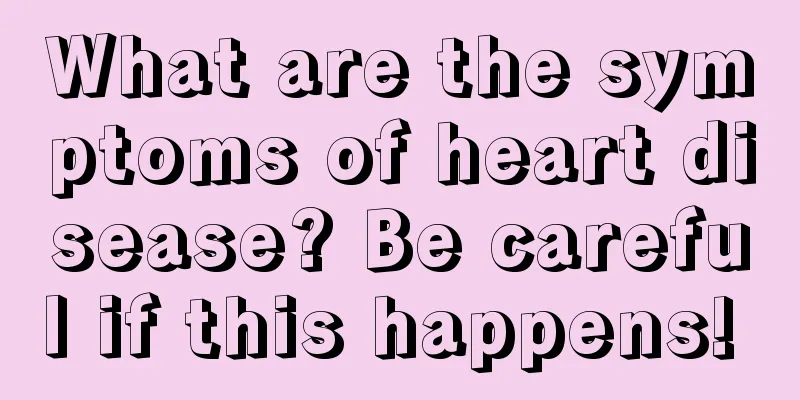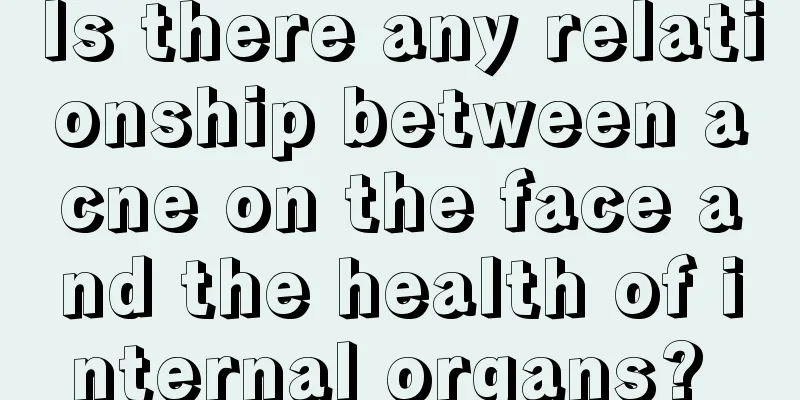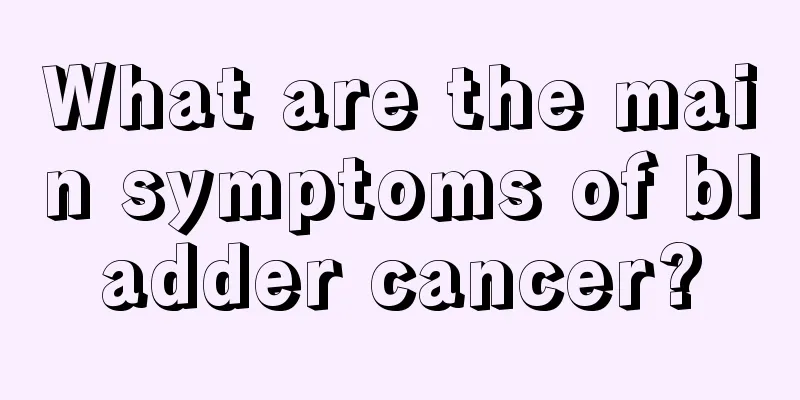What are the symptoms of heart disease? Be careful if this happens!

|
I believe everyone is familiar with heart disease, because this disease is extremely common in life. In fact, heart disease is a general term for all heart diseases. The symptoms of heart disease are relatively obvious, which helps patients to find out what is wrong with their bodies in time. 1) Pain The heart muscle cannot get enough blood and oxygen (called myocardial ischemia) and the accumulation of excessive metabolic products can cause spasm. Angina pectoris is a feeling of tightness or pressure in the chest caused by the myocardium not getting enough blood supply. 2) Shortness of breath Shortness of breath is a common symptom of heart failure and is the result of fluid leaking into the alveolar interstitium of the lungs, called pulmonary congestion or pulmonary edema, which can be similar to drowning. In the early stages of heart failure, shortness of breath occurs only during physical activity. As heart failure worsens, shortness of breath may occur even with minimal activity, and may even occur at rest. When lying down, the fluid seeps into the entire lungs, while when standing up, the fluid is mainly distributed at the bottom of both lungs due to gravity. Therefore, patients with heart failure may experience shortness of breath or worsen symptoms when lying down, while symptoms are alleviated when standing up. Paroxysmal nocturnal dyspnea is shortness of breath that occurs when the patient lies flat at night and is relieved by standing up. 3) Fatigue When the heart's ability to pump blood decreases, blood flow to the muscles during activity is insufficient to meet demand, and people often feel tired and exhausted. However, these symptoms are often elusive and difficult to attract the attention of patients. Patients often adapt or attribute this to aging by gradually reducing their activity levels. 4) Palpitations Normally, people have no sense of their own heartbeat. But in certain circumstances, such as after strenuous activity, even normal people may notice that their heartbeats are very strong, rapid, or irregular. Your doctor can confirm these symptoms by palpating your pulse or auscultating your heart. 5) Dizziness and fainting Decreased cardiac output due to abnormal heart rate, rhythm disturbances, or pumping failure can cause dizziness and syncope. These symptoms may also be caused by a disorder of the brain or spinal cord or may have no serious cause. |
<<: Symptoms of heart valve insufficiency
>>: How to prevent myocardial infarction?
Recommend
Can newborns smell mosquito coils?
There are more mosquitoes in the summer, and peop...
How to clean a dyed leather bag
Handbags should be very common in people's da...
The mortality rate from thyroid cancer is almost zero
Thyroid cancer is a relatively rare cancer that g...
What are the remedies for yogurt not solidifying
Yogurt is particularly beneficial to the body. It...
Is snow chrysanthemum cold or warm in nature? Be careful when drinking it
Snow chrysanthemum is a particularly good health ...
What is the reason for the heartache on the right foot
Pain in the right sole of the foot may be caused ...
What should you do when using a bamboo cutting board for the first time? Here are two cleaning methods for you
Many people don’t know how to use a cutting board...
The benefits of fig jam
Fig is a flowering plant and its fruit can be fou...
Diet at different stages of endometrial cancer
We all know that any disease will cause certain h...
Non-articular rheumatism
Non-articular rheumatism is a problem that many p...
What are the exercises to treat premature ejaculation?
For male friends, premature ejaculation is a dise...
What are the misunderstandings people have about kidney cancer?
People often mistakenly believe that once kidney ...
Can bird's nest be stored in the refrigerator?
The storage and preservation of bird's nests ...
What foods can prevent laryngeal cancer?
Cancer is very common in our lives. I believe eve...
Can collagen be injected for skin whitening?
Collagen is a common beauty technology. First of ...









